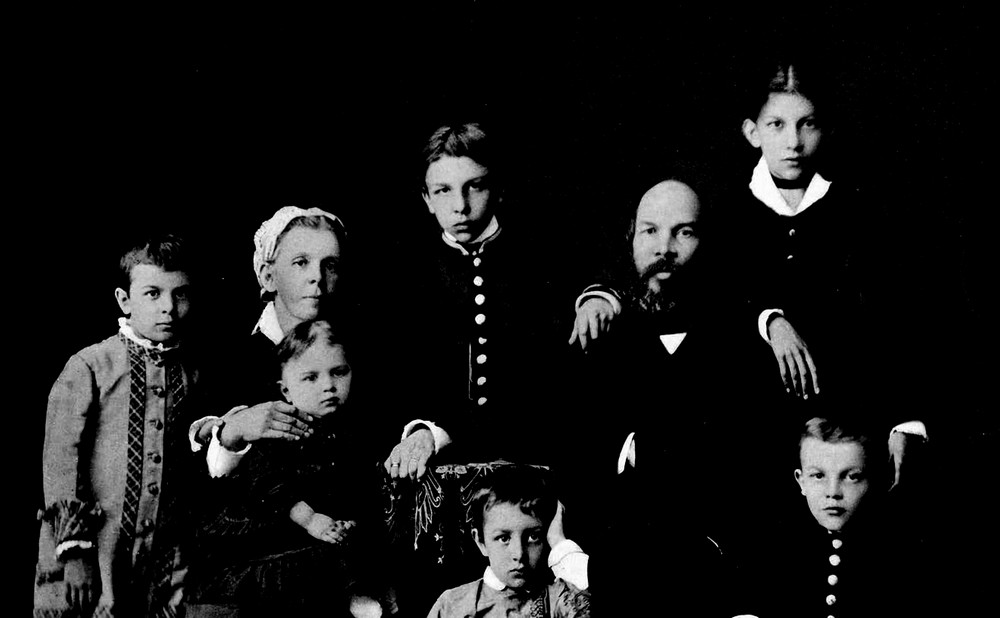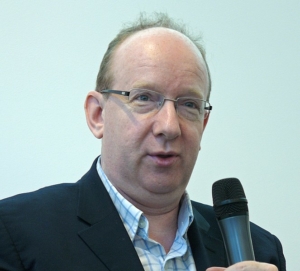The Levers of Sociobiology: Power Laws from Stalin to Starlings
They strut, they chatter, they gleam with gem-like colours: starlings are one of the joys of summer right across Europe. You could spend a lifetime studying them, but one thing is already certain. There has never been a starling Stalin.
Khans and canals
In other words, no individual starling has ever been millions of times more powerful or influential than the average starling. No starling has ever exercised power over a vast number of other starlings like Josef Stalin (1878-1953) or left a genetic legacy like that of Genghis Khan (c. 1162-1227), who is the ancestor of about 16 million men in modern Eurasia, according to DNA analysis. By exploiting certain aspects of human sociobiology, Genghis Khan achieved huge political success and thereby won sexual access to vastly more women than the average man. Stalin pulled the levers of sociobiology in a comparable way but, at a later period and in a different culture, didn’t translate his political success into offspring as Khan did.

Stalin vs Starling
But the similarities between the two men are more important than the differences. Josef Stalin and Genghis Khan were clearly exceptional members of their species, Homo sapiens, in a way that no starling ever has been of its species, Sturnus vulgaris. It’s interesting to ask what aspects of biology permit human Stalins and prevent starling Stalins. Human beings and starlings are alike in that no individual in these species is, as an individual, vastly more intelligent or physically powerful than other individuals. Stalin could not have dug the White Sea Canal or designed and built the T-34 tank by himself. Nor could any other individual human. Those were collective endeavours, but they expressed the will of the individual known as Stalin or of the small number of individuals at the top of Soviet society.
Flight is not might
Starlings too engage in a collective endeavour known as flocking, in which hundreds of thousands or even millions of individual birds behave as a single coordinated entity. But there is no guiding mind in a flock, no controlling will, and no individual starling could exploit the power of a flock to win itself vastly increased social and reproductive success. Why not? Well, try a thought experiment and imagine that you were an omniscient biologist who could completely control the behaviour of an individual starling. How would you turn it into a starling Stalin or starling Genghis Khan? You couldn’t, because certain levers are missing in starling biology.
The most obvious missing lever is language. Starlings can’t give or follow orders. In a hierarchical species, language is the key to what you might call force-multiplication. Stalin was dominant in more than a crudely physical sense: he was also charismatic, that is, he could beguile and dominate people with his words and manner. That is how he was able to rise steadily in an organization that enabled him to give orders and have them obeyed. He was able to translate his individual will into collective action against those individuals who opposed him. In Mongol society, Genghis Khan must have been charismatic and dominant in a comparable way. A warrior nation like the Mongols could not have been led by a weakling or a mild-mannered scholar.
Crook in the Kremlin
Centuries later, Stalin did not have to be a literal warrior to become leader of his collective. It’s true that he first made his name with daring physical exploits like bank-robberies, but he left such things behind as he began his climb to true power. Nevertheless, you could say that the ferocious will and lupine cunning that took him to the top had been forged by millennia of real fighting and theft. Stalin was Georgian, not Russian, and his birthplace, the Caucasus, is renowned as a land of clans, feuds and banditry. It’s also mountainous and some Caucasian groups, like the Chechens, are comparable to the mountain-dwelling Alawis of Syria, whose will-power, cunning and aggression won them dominance over the majority Sunnis (for more on Syria and the Alawis, see “The United States of Syria: Domestic Lessons in a Distant War”).
And Stalin may even have been a Genghisid, or literal descendant of Genghis Khan, because the Mongol invasions left a genetic legacy across a vast swathe of the northern hemisphere, including the Caucasus. But Stalin’s mentor Vladimir Lenin is a likelier Genghisid, because his paternal grandmother was Kalmyk, from a Mongolian group in south-western Russia. Unlike Stalin, Lenin didn’t start his rise to power as a bank-robber and bandit. His dominance was never physical, but always linguistic—perhaps reflecting his Jewish ancestry. He was a bureaucrat-tyrant who won control of a vast nation with his pen and his tongue, not with his fists or his sword-play. Lenin thereby fulfilled a prophecy reported by the Polish philosopher and historian Leszek Kołakowski in his magisterial Main Currents of Marxism (1978):
[The anarchist Mikhail] Bakunin [(1814–76)] … not only combated Marx’s political programme but, as he often wrote, regarded Marx as a disloyal, revengeful man, obsessed with power and determined to impose his own despotic authority on the whole revolutionary movement. Marx, he said, had all the merits and defects of the Jewish character; he was highly intelligent and deeply read, but an inveterate doctrinaire and fantastically vain, an intriguer and morbidly envious of all who … cut a more important figure than himself in public life. (p. 248) Bakunin … inveighed against universities as the abodes of elitism and seminaries of a privileged caste; he also warned that Marxist socialism would lead to a tyranny of intellectuals that would be worse than any yet known to man. (Op. cit., Vol. I, The Founders, Clarendon Press, Oxford, p. 250)
Bakunin was right: Karl Marx was indeed “highly intelligent.” But if we assume an average IQ of 100, Marx probably wasn’t more intelligent than the average intellectual in nineteenth-century Europe. Nevertheless, he has been millions of times more influential and historically important than the average intellectual, rather in the way that billionaires like Jeff Bezos and Mark Zuckerberg are millions of times richer than the average person. There are levers in human society and human sociobiology that allow individuals to translate limited advantages in variables like intelligence into vastly larger advantages in ideological influence, political power and wealth.
Consider the cube
Power laws are at work in more senses than one, because the mathematical relationship between variables of, say, intelligence and accumulated wealth is not linear. Departures from linearity are most obvious at the high and low ends of the IQ distribution, with a broad swath in the middle not showing an upward trend. IQ is like the side-length of a cube and wealth is like the volume of a cube. If the side-length of a cube doubles, that is, increases by 2, then the volume octuples, that is, increases by 8. A sober linear progression in side-length like 1, 2, 3, 4, 5… becomes a much more impressive progression of 1, 8, 27, 64, 125… in volume.

IQ and accumulated wealth
For “side-length,” read intelligence or ethnocentrism; for “volume,” read wealth or political power. When you see power laws at work, it becomes easier to understand how a tiny group like the Jews, whose average intelligence and ethnocentrism are not vastly greater than the White average, has nevertheless come to dominate vast areas of Western culture and politics. In short, power laws are powerful. And they’re everywhere in the living world. As a recent scientific report put it: “the properties of biological systems are often governed by power laws, rather than linear relationships.” Culture and politics are biological systems too, and the same insight applies. The relative sizes of competing groups do not tell us about their relative power. A small group can manipulate and dominate a larger group, just as a microscopic parasite like Toxoplasma gondii can manipulate the brain of a rat or even a human being.
Controlling signals
Toxoplasma manipulates its host by interfering with chemical signals in a rat’s brain. Manipulation among human beings often involves another form of signalling. It’s the most complex and scientifically interesting signalling so far observed in the universe: language. But when we examine the “tyranny of intellectuals” inspired by Marx’s ideology, we can see that language wasn’t the only key to power. Silence was vital too. The Bolsheviks ruled not only by using language, but also by suppressing it. In other words, they censored their opponents. If Tsarist Russia had had a secret police as ruthless and effective as the Cheka or NKVD, it might have prevented the spread of dangerous ideas by destroying Marxist literature and newspapers. But the Tsars didn’t suppress the language of their opponents as the Bolsheviks later would.
For example, Leon Trotsky (né Bronshtein), Lenin’s second-in-command and Stalin’s rival, first made his name as a journalist and editor. He even enjoyed the smell of printer’s ink, because it filled him with a sense of power and possibility. He was a highly intelligent man, but his arrogance was a fatal handicap. Stalin easily out-witted and out-manoeuvred him, but you could say that he saw it coming. Trotsky once said something that offers a vital insight into the levers of human sociobiology. Let’s have the quote first in Russian:
Но внутренней партійной политикѣ эти методы приводятъ, какъ мы еще увидимъ, къ тому, что партійная организація „замѣщаетъ“ собою Партію, Ц. К. [Центральный комитет] замѣщаетъ партійную организацію, и, наконецъ, „диктаторъ“ замѣщаетъ собою Ц. К. (See here)
If you’re like me and don’t understand Russian, the quote above will be meaningless. But that makes an important point about information: controlling it is key to power. As I pointed out in “Words as Weapons,” there is a linguistic asymmetry between Israel and gentile nations in that Israeli intelligence can easily find Jewish speakers of English or Russian, while rival intelligence agencies don’t find it easy to find non-Jewish speakers of Hebrew. But before Israel was created and Hebrew was revived as a living language, Jews had still tried to maintain a linguistic asymmetry to their own advantage. The Jewish language Yiddish is a dialect of German and much of it can easily be understood by speakers of standard German. But Jews wrote Yiddish in Hebrew characters and effectively screened it off from gentile eyes.
Internal politics
But Trotsky didn’t want to screen his writing off from the eyes of strangers. On the contrary, he wanted to spread it as widely as possible. His own ideas didn’t remain in Russian, where their impact would have been limited, but he couldn’t have translated and transmitted them entirely on his own. He relied on a small but effective collective, which is why I can now offer his vital insight in English:
In the internal politics of the Party these methods [of control] lead, as we shall see below, to the Party organisation “substituting” itself for the Party, the Central Committee substituting itself for the Party organisation, and finally the dictator substituting himself for the Central Committee. (Our Political Tasks)
Trotsky said that in a pamphlet first published in 1904. In other words, he prophesied the rise of a Stalin, a man whose cunning, ruthlessness and charisma allowed him to follow Trotsky’s recipe for power and become the supreme ruler of a nation of many millions. But as Trotsky foresaw, Stalin didn’t have to outwit or manipulate every individual in that nation, or indeed every individual in the Communist party. Even the arch-conspirator Stalin had limited time and energy, but he applied them at exactly the right points in the power-structure. By dominating the bureaucracy of the Communist party, he was able to control the appointment of officials, promoting his own allies and blocking the advance of his opponents’ allies.
No ethnic Russians
But he controlled something else. Here’s Leszek Kołakowski again: “Having successfully achieved control over the information that reached Lenin, who was ill and infirm, Stalin ruled the party with the aid of Zinovyev and Kamenev and systematically excluded Trotsky from power.” (Op. cit., Vol. III, p. 20) Information is central to language and communication, and so is also central to the power laws that operate among human beings. And it’s very interesting that some of the information in that quote from Kołakowski is rigorously controlled in the modern West. The quote is about the supreme leaders of Bolshevik Russia, but no ethnic Russians are mentioned in it: Lenin had German, Mongol and Jewish ancestry; Stalin was Georgian; Trotsky, Zinovyev and Kamenev were all Jewish – they were first known as Lev Bronshtein, Hirsch Apfelbaum, and Lev Rozenfeld, respectively.
That mix of minorities was not good for ethnic Russians. Like Ba’athist Syria, Bolshevik Russia is an example of what happens when vengeful minorities win power over a majority against whom they hold strong historical grudges. But twenty-first-century historians find it dangerous to discuss the racial patterns in Russian history, let alone to identify related patterns in, say, American immigration legislation and Australian campaigns against “hate-speech.” In America and Australia, Jews have also been dominant figures despite being a small minority of the general population. They’ve achieved this dominance in many ways and one of them might be called camouflage. Trotsky, Zinovyev and Kamenev were fully aware of their Jewishness, which is why they abandoned their clearly Jewish birth-names. Camouflage and crypsis, which again involve the control of information, are widespread both in the natural world and in the world of politics and culture. But what about Lenin and his Jewishness? According to a recent biographer, he was “almost certainly unaware of his partially Jewish ancestry.”

Face the family: Lenin (bottom right) and his folks
I would qualify that claim: Lenin may not have been consciously aware, but that does not exclude an unconscious awareness. Jaydar, a blend of “J(ew)” and “radar,” is the humorous term for the ability to sense Jewish ancestry in a stranger. It’s a real phenomenon and it seems to have played an important role in British politics, as the Jewish Tory Lord Finkelstein has described in the Jewish Chronicle. He is writing about George Osborne, formerly a powerful figure in the part-Jewish David Cameron’s government and now the editor of the London Evening Standard:
That mysterious sense of Jewish connection
Some of my best friends are Jewish. Well, all right, most of my best friends are Jewish. And I’ve been thinking about why.
This week [in May 2018], reports on the wedding of George Osborne’s brother Theo included accounts of an Orthodox ceremony and Theo’s discovery that his maternal grandmother was Jewish. In other words, George himself is halachically Jewish [i.e., would be allowed to emigrate to Israel as a Jew].
This is the second time that one of my small circle of very close non-Jewish friends has turned out, in fact, to be Jewish. Something that not only I didn’t know when we first became friends, but they didn’t know either.
In George’s case this is made even more intriguing and amusing by the fact that I have often joked to him about how he seems to have made so many close Jewish friends and how striking that was. (George has often talked about being jealous at school of his friends having barmitzvahs. Former Israeli ambassador Daniel Taub responded by presenting him with a fountain pen.)
Which has led me to wonder whether this is all more than mere coincidence. … [T]here is the undoubted bond that exists with other Jews, sometimes even complete strangers. Take, for example (although, yes, I’m fully conscious this is a ludicrous example) other Jewish members of the House of Lords.
There is no doubt that across parties and across the House there is a connection between those of us who are Jewish. It isn’t a political connection particularly (although there have been moments). It’s more a sympathy and an understanding of where we are coming from. … A sense that we are all family. And that every time you meet another Jew for the first time, you are really taking part in a family reunion. (That mysterious sense of Jewish connection, The Jewish Chronicle, 22nd May 2018 / 8th Sivan 5778)

Daniel Finkelstein, Jewish but not conservative
Finkelstein offers us a very interesting glimpse into the way Jewish networking has allowed his tiny ethnic group to achieve wholly disproportionate influence in British politics. It’s long been obvious that Jews control the governing Tory party, for example. But that obvious fact can’t be mentioned in respectable society, because Jews have also pulled levers in the British media and legal system. However, Finkelstein wasn’t writing just about conscious Jewish networking. He liked Osborne as a Jew before either man was consciously aware that Osborne had Jewish ancestry. Furthermore, Osborne “made … many close Jewish friends,” who undoubtedly assisted him in his rise to the top of British politics. When he got there, he shared power with the part-Jewish David Cameron and the fully Jewish Lord Feldman, the limelight-shunning businessman who was first Chief Executive of the Tory party and then Chairman.
What would Sigmund say?
That is George Osborne and British politics. But was Lenin’s partnership with Trotsky, Zinovyev and Kamenev based on a similar intuitive recognition of genetic kinship? Lenin was certainly prone to Jewish supremacism, because he once said: “An intelligent Russian is nearly always a Jew or a person with an admixture of Jewish blood.” It followed, then, that Lenin himself, as a very intelligent “Russian,” should have thought himself very likely to have “an admixture of Jewish blood.” Lenin may not have consciously reasoned like that, but his subconscious may have arrived at the truth, as Lord Finkelstein’s did in the case of George Osborne.
It would be good to have Sigmund Freud’s verdict on Lenin and his Jewishness. Freud was, after all, both an ethnocentric Jew and an expert on the subconscious. And the movement he founded is another example of power laws at work. By controlling strategic points in publishing, academia and the media, a small group of disproportionately Jewish intellectuals was able to make Freudianism one of the most successful ideologies of the twentieth century. But it was successful as an ideology, not as a science: like Marxism, Freudianism claims an epistemological status that, in the opinion of countless critics, it emphatically does not deserve.
Falsehood is no handicap
In politics and culture, the falseness or vacuity of an ideology is not a barrier to its success. Indeed, questions of truth and falsehood can be irrelevant. So can questions of relative complexity or worth. They don’t apply to Marxism and Freudianism any more than they do to a simple parasite subverting the nervous system of a much more complex animal. Marxism was the justification for Bolshevik power, but its strictures did not constrain the individuals who controlled the Soviet state. To quote Leszek Kołakowski again: “… during [Stalin’s] years of power, there was scarcely any other brand of Marxism than his, and since the Marxism of those days can hardly be defined except in relation to his authority, it is not only true but is actually a tautology to say that for a quarter of a century he was the greatest Marxist theoretician.” (Op. cit., Vol. III, p. 26)
Stalin was the greatest theoretician because he controlled Soviet publishing, which allowed him to spread his ideas and impose his will with great effectiveness. Writing and the printed word are force-multipliers, and they’ve been central factors in the success of Jewish ideologies. They’re also the closest human beings have yet come to conquering death. Lenin and Marx are long-dead, but their influence lives on through the power of print — or the power of pixel, as it often is today. Modern technology has given individuals an unprecedented ability to exchange information and ideas. As the rise of Donald Trump and other populists has shown, control over traditional media is no longer enough to guarantee control over politics.
Information wars are raging
That’s why Jewish groups like the ADL and SPLC are now trying hard to choke the internet into submission. The recent “de-platforming” of Alex Jones and his highly popular Infowars was indeed a blow struck in the information wars. The outcome of those wars will determine the future of the West, but there are already many signs that things are turning decisively in favour of the realitarians, not the egalitarians (sincere and otherwise). By the standards of cultural Marxism, the realitarians are blasphemers, because they do not accept the Psychic Unity of Mankind or believe that “There Is Only One Race — the Human Race.” Instead, they believe that race definitely exists and that the continued presence of non-Whites in Western nations is not good for the Whites who built those nations.
Power laws are at work again and realitarian ideas are rising in influence and effect. Realitarians like Occidental Observer writers have not needed to be the majority to achieve success — and we have a great advantage over ideologies like Marxism and Freudianism. Our ideas are in accordance with reality, not at odds with it. Human beings are not a post-biological species and the science that applies to starlings can also apply to human beings like Stalin. And remember this: Stalin out-manoeuvred the Jews who were such an important part of communism. Trotsky, Zinovyev and Kamenev were all once more powerful and important than he was. But Stalin pulled the levers of sociobiology more effectively than they did. What he did then, the realitarians can do now.





Comments are closed.